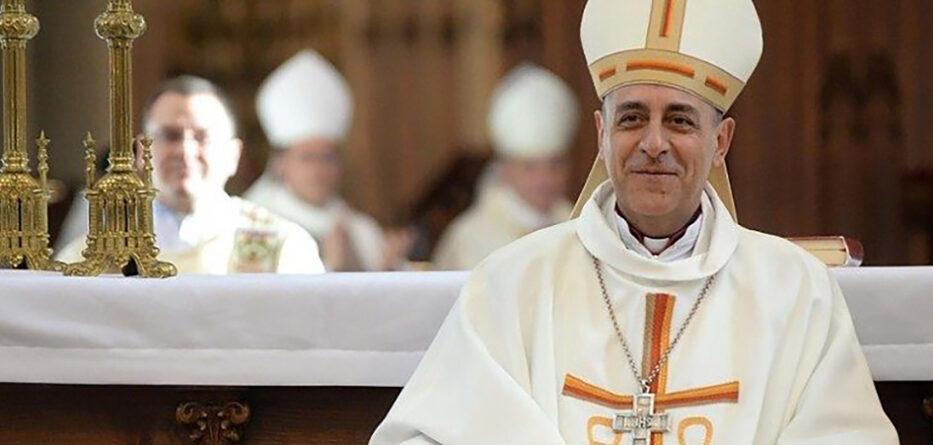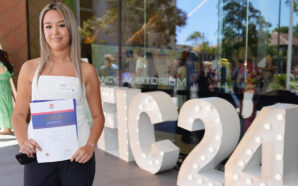In an interview with Vatican Media, Cardinal-elect Víctor Manuel Fernández of La Plata, whom Pope Francis has appointed Prefect of the Dicastery for the Doctrine of the Faith, reaffirms that the faith is safeguarded especially by growing in our understanding of it, while remaining vigilant.
A theology that grows and deepens “in dialogue between theologians and in conversation with science and society,” but always at the service of evangelisation.
The Archbishop of La Plata, Argentina, Víctor Manuel Fernández, believes that this is the task that Pope Francis has entrusted to him, which emerges from the letter that the Holy Father simultaneously sent him, as he was appointed Prefect of the Dicastery for the Doctrine of the Faith.
Archbishop Fernández has been a close collaborator of Pope Francis since he was Archbishop of Buenos Aires.
In this interview with the Vatican Media, the new prefect, whom Pope Francis named to become a Cardinal at the 30 Sept. 2023 Consistory, and who will take up his post in September, explains what it means to proclaim the Gospel and guard the faith today.
Q: Your Excellency, why did the Pope accompany your appointment with a letter and what is the significance of this?
There is undoubtedly an important meaning in this, because the Pope announced to me that, together with the decree of appointment, he wanted to send a letter to ‘clarify’ the meaning of my mission.
The letter offers at least six strong points which invite reflection, but I interpret that with this text, he has, in some way, anticipated the application of the Apostolic Constitution Praedicate Evangelium.
For he calls for a theology that matures, that grows, that deepens, in dialogue between theologians, and in conversation with science and society. But he calls for all this, at the service of evangelisation.
The placement of this Dicastery after that of Evangelisation had already conveyed this message, but Pope Francis’ letter makes it more explicit. The fact that he chose, as Prefect, a theologian, who was also a parish priest, reaffirms it in another way.
Q: What does ‘safeguarding’ the faith mean today?
Pope Francis indicates that the expression ‘to safeguard’ is rich in meaning. It certainly does not exclude vigilance, but expresses that the doctrine of the faith is preserved, above all, by growing in its understanding.
Even a situation where a possible heresy has to be dealt with, should lead to a new theological development that matures our understanding of the doctrine, and this is the best way to safeguard the faith.
If Jansenism, for example, was able to persist for so long, it was because there was only condemnation, but no response to certain legitimate intentions that might lie behind the errors, and no proper theological development over time.
Q: How does one proclaim the Gospel and how does one transmit the faith, in the increasingly secularised contexts of our societies?
By always trying to better show all its beauty and attractiveness, without disfiguring it by infecting it with worldly criteria, but always finding a point of contact that allows it to be truly meaningful, eloquent, precious for those who listen to it.
Without dialogue with culture, we risk our message, however beautiful, becoming irrelevant. This is why I am grateful for my time as a member of the Pontifical Council for Culture, where I learnt a lot alongside Cardinal Ravasi.
Q: What is the meaning and relevance of the words that Benedict XVI placed in the introduction of the encyclical Deus caritas est: ‘Being Christian is not the result of an ethical choice or a lofty idea, but the encounter with an event, a person, which gives life a new horizon and a decisive direction’?
It is appropriate to remember these words today. No religious doctrine has ever changed the world unless there has been an event of faith, an encounter that re-orients life. And this does not only apply to Christianity, but can be seen in the history of religions. For example, in the crisis of Hinduism and its subsequent renewal, with hymns to Krishna and many other occasions.
Without an experience of the living Christ who loves and saves, we cannot shape our ‘being Christian’, and concentrating on arguing, and debating with everyone, will not help mature this development in people. This statement by Benedict XVI invites us to develop a solid and well-founded theology that is clearly oriented towards the service of this event.
With thanks to Vatican News and Andrea Tornielli, where this article originally appeared.








